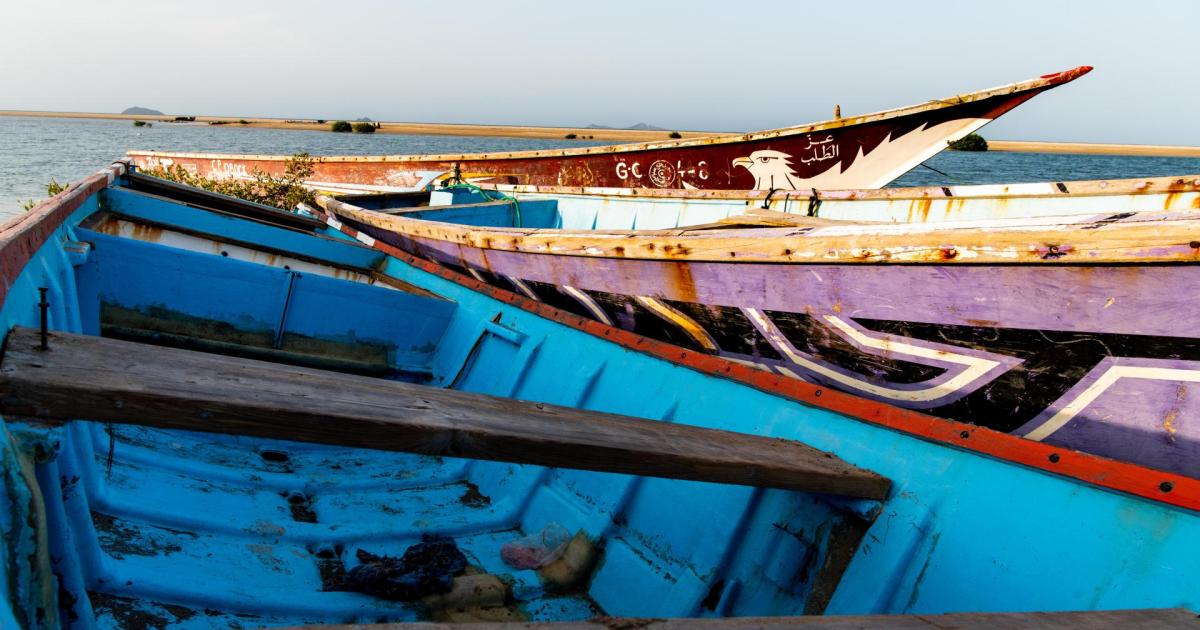Geneva / Shabwah, 11 June – At least 49 migrants have died and 140 others remain missing after a boat capsized off the coast of Yemen. The vessel carrying 260 migrants capsized yesterday (10 June) near Alghareef Point in Shabwah governorate. Among those that lost their lives in the devastating tragedy are 31 women and six children.
“This recent tragedy is another reminder of the urgent need to work together to address urgent migration challenges and ensure the safety and security of migrants along migration routes,” said Mohammedali Abunajela, IOM Spokesperson. “Our thoughts are with the victims and their families as we remain committed to supporting survivors and improving search and rescue efforts in the region.”
According to the survivors, the boat departed from Bossaso in Somalia at around 3:00 am on Sunday, carrying 115 Somali nationals and 145 Ethiopians, with 90 women among them. This mirrors the recent rise in migrants from the Horn of Africa travelling to Yemen, spurred by political and economic instability, alongside severe droughts and other extreme weather events in countries like Ethiopia and Somalia.
The International Organization for Migration (IOM) has mobilized two mobile medical teams to provide immediate assistance to the survivors, including six children. Out of the 71 survivors, eight migrants required further medical attention and were referred to a hospital while the remaining 63 survivors received first aid and minor treatment, including trauma care and wound dressing from the on-site mobile clinic. IOM psychologists working with the mobile medical team are providing mental health support to 38 survivors.
Search and rescue operations are ongoing despite significant challenges due to a shortage of operational patrol boats, a situation further complicated by the recent conflict. Local community members, including fishermen, played a crucial role in the aftermath by assisting with the recovery efforts and helping to lay the deceased to rest at Ayn-Bamaabed cemetery.
Despite these efforts, 140 individuals are still missing, and efforts are currently underway to explore additional search and rescue options as more bodies continue to wash ashore in various locations.
This tragedy comes on the back of two separate shipwrecks on the same route along the coast of Djibouti claiming the lives at least 62 migrants. Since 2014, IOM’s Missing Migrants Project has recorded 1,860 migrant deaths and disappearances along the Eastern Route from the East and Horn of Africa to the Gulf countries, including 480 due to drowning.
The Eastern Horn of Africa to Yemen is one of the world’s busiest and most perilous mixed migration routes, frequented by hundreds of thousands of migrants, the majority of whom undertake irregular journeys. Often relying on smugglers to navigate the journey, migrants are frequently at an increased risk, including of human trafficking, during the perilous boat journey to Yemen’s shores.
Despite the ongoing conflict in Yemen, thousands of migrants continue to transit through Yemen in hopes of reaching the Kingdom of Saudi Arabia and other Gulf countries. In 2023, IOM’s Displacement Tracking Matrix (DTM) observed more than 97,200 migrant arrivals to Yemen, surpassing figures from last year when just over 73,000 migrants arrived in Yemen.
Notes to Editors:
IOM’s Missing Migrants Project is the only open-access database on migrant deaths and disappearances worldwide and the sole indicator (10.7.3) to measure safe migration in the Sustainable Development Goals (SDGs).
Together with 48 other humanitarian and development organizations and governments, IOM coordinates the Regional Migrant Response Plan for the Horn of Africa, Yemen and Southern Africa (MRP) to respond to the urgent humanitarian needs of migrants along the Eastern Route. Although MRP partners appealed for USD 112 million, the appeal remains severely underfunded.
For more information, please contact:
In Yemen: Monica Chiriac, [email protected]
In Geneva: [email protected]
In Cairo: Tamim Elyan, [email protected]



